The recommended tire pressure for a Honda Odyssey is 35 pounds per square inch (PSI) for both the front and rear tires.
Maintaining proper air pressure in your tires is important for a comfortable ride—but did you know it can also impact your steering and fuel economy? Problems with tire pressure can hurt your vehicle in more ways than one, not to mention increase your risks of a blowout on the road. That’s why it’s essential to know yours.
For Honda Odyssey drivers, the recommended tire pressure is usually around 35 psi for both front and back tires. But that’s not always the case—which is why
car insurance
comparison app
Jerry
is here with the information you need to cut down your
Honda insurance costs
and keep your Odyssey rolling safely when you’re on the road.
What is the right tire pressure for a Honda Odyssey?
In most cases, the recommended tire pressure for a Honda Odyssey is 35 psi for both front and rear tires. To confirm this number, you can check your owner’s manual or look at the sticker affixed to the driver’s side doorjamb.
However, if you drive an upgraded trim level of the Odyssey, you might need a slightly different tire pressure. For example, in the Odyssey Elite—which sports, among many other upgrades, a larger 19” wheel size—the recommended tire pressure is 36 psi for both front and rear tires. The Odyssey EX, on the other hand, requires just 33 psi for both front and rear tires for its smaller 17” wheels.
If you invested in a high-performance tire, such as summer tires, or if you’ve modified your Odyssey with bigger wheels and new tires, you may also require a different tire pressure—be sure to check the specifications for your new setup before you hit the road.
Tire pressure recommendations for other Honda vehicles
Vehicle | Front tire pressure | Rear tire pressure |
|---|---|---|
2022 Honda Civic | 32 psi | 32 psi |
2022 Honda CR-V | 32 psi | 30 psi |
33 psi | 33 psi | |
2022 Honda Accord | 32 psi | 32 psi |
2022 Honda Pilot | 32 psi | 32 psi |
2022 Honda HR-V | 32 psi | 28 psi |
How to check Honda Odyssey tire pressure
Not sure how to check your Honda’s tire pressure? For Odyssey drivers, the process is easy—just use your Driver Information Interface (DII) to get a TPMS reading. If there’s low tire pressure, your display will let you know with a notification—and can even tell you which tire is the culprit.
Whenever you’re adding air, your Odyssey’s TPMS will give you a signal (in the form of a horn chirp and flashing lights) that lets you know you’ve reached the appropriate tire pressure level. Easy peasy!
If you drive an older Odyssey, don’t worry—checking the tire pressure yourself is just as easy, and an important basic skill to have under your DIY-mechanic belt. To accurately check the pressure in your tires, start by removing the valve stem cap on each one, then fix
a tire pressure gauge
onto the valve stem.
The pressure gauge will give you a reading, which you can use to either add or remove air to your tires. This process can be done at home, or at virtually any gas station with an air-filing station (which will also have a pressure gauge for you to use).
Aside from checking the TPMS display or using a pressure gauge yourself, your vehicle has other ways of indicating low tire pressure.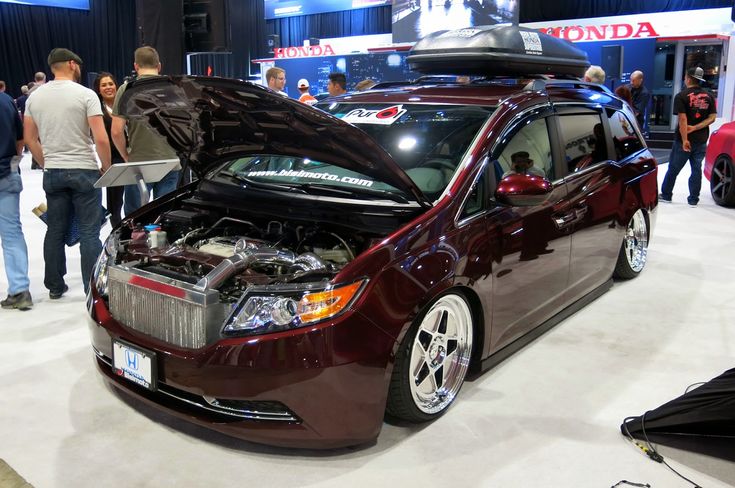 Decreased performance, an uneven ride, and steering troubles can all point to problems with your tire pressure.
Decreased performance, an uneven ride, and steering troubles can all point to problems with your tire pressure.
How often should you check tire pressure?
It’s a good idea to check your Honda Odyssey’s tire pressure at least once a month, or before any long road trips.
How to tell if your Honda Odyssey needs new tires
Honda Odyssey tires typically last around 60,000 miles before they need to be replaced. In terms of time, that’s approximately once every 6 yearsor so.
Careful driving can extend the natural lifespan of your Honda tires—but if you start to notice low tread depth or odd cracks and bulges in your tires, it’s probably time for a new pair.
How to reset Honda Odyssey tire pressure monitoring system (TPMS) light
If you’ve refilled your tires to the correct psi, but the low-pressure light is still lit up on your dashboard, you may need to
reset the tire pressure light
.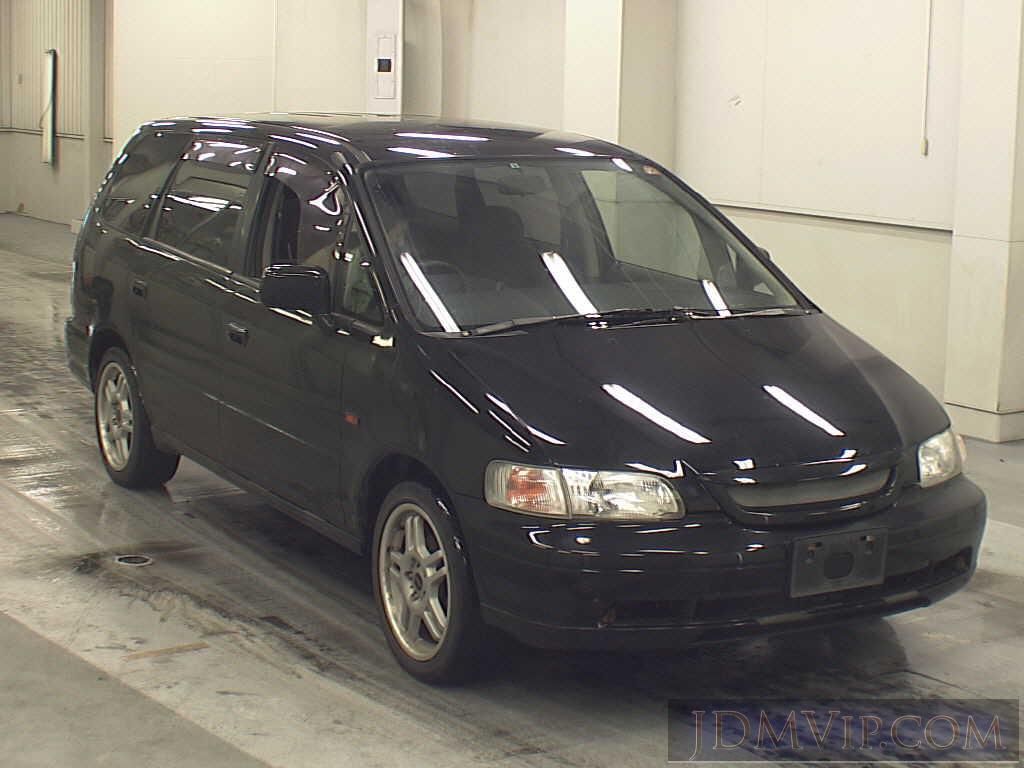 The way to do this will depend on your vehicle’s age and features, but depending on the tech level of your Odyssey, we’ve outlined the basic procedures below:
The way to do this will depend on your vehicle’s age and features, but depending on the tech level of your Odyssey, we’ve outlined the basic procedures below:
For Honda Odyssey models with a display audio touchscreen: From your display’s home screen, navigate to your settings. Select “vehicle,” then select the option titled “TPMS Calibration.” Once you’ve done this, confirm the calibration by selecting “Calibrate” and your TPMS should automatically reset.
For Honda Odyssey models without a display audio touchscreen: Use your steering wheel buttons to navigate to settings on your driver information display screen. In your settings, there will be a “TPMS Calibration” option. Select it, then select “Calibrate” to automatically reset your TPMS.
For Honda Odyssey models with a TPMS button: In some models, you can simply press a TPMS button to trigger system calibration. You’ll find the TPMS button located to the left of your steering wheel.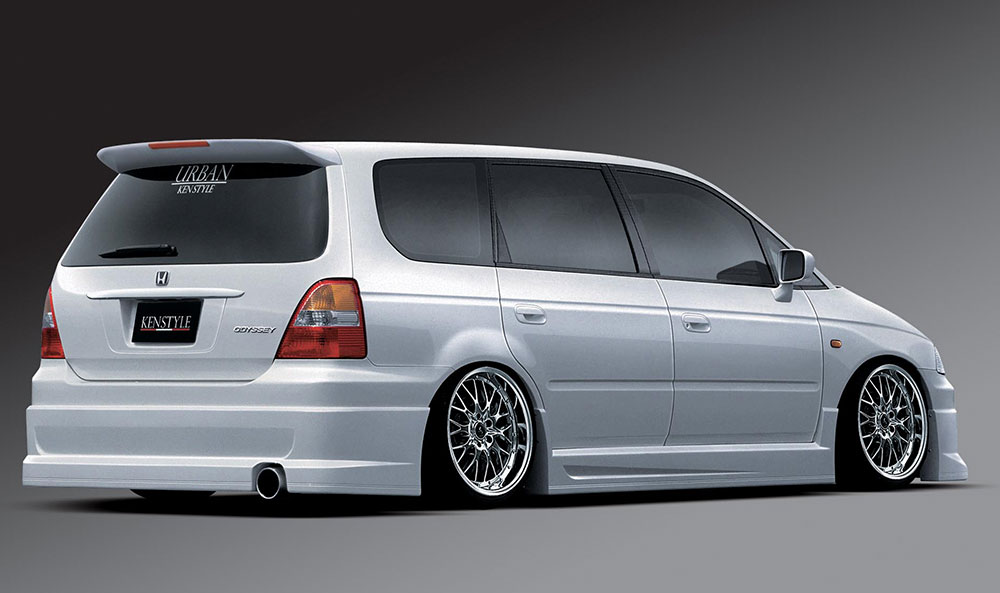 Once you’ve located it, all you need to do is press and hold the button until your warning lights blink twice.
Once you’ve located it, all you need to do is press and hold the button until your warning lights blink twice.
You can always check your vehicle’s owner’s manual for help recalibrating the TPMS in your specific Odyssey. If you can’t resolve the issue manually, you could be facing a faulty sensor or another type of problem—in which case, it’s worth it to take your car to a mechanic.
How to save on Honda Odyssey insurance
Maintaining proper air pressure in your tires is just one way to keep your vehicle safe. But if you’re looking for a more thorough form of protection, you’ll need a car insurance policy that meets your minivan-sized needs.
Luckily,
Jerry
can help. As a
licensed broker
and top-rated insurance comparison app, Jerry makes the hard work of finding the perfect policy easier than ever before. Signing up takes less than a minute, and just as quickly Jerry can present you with customized quotes from a pool of over 55+ name-brand insurance providers across the country.
Compare rates side-by-side, make changes at any time, and let Jerry handle the pesky phone calls, paperwork, and renewals associated with your top picks. No long forms. No hassles. Just savings.
“I’d recommend
Jerry
to anyone. I’ve almost halved my insurance bill with a new Allstate plan and it took under 10 minutes.” —Leon W.
Tires are among the most numerous components of your car. They are responsible for multiple facets of safety including performance, traction, and responsiveness. But your tires are alluring for other reasons as well such as efficiency and benefit.

For these reasons, the brand, tire size, and type of tire are all positive for your Honda Odyssey.
At Coggin Deland Honda, we buy our tires directly from the manufacturers. As certified franchise dealers our relationship with the OEM also requires that the tires we sell be of high quality and be made entirely to fit the vehicles we sell. As a result of our relationship, we are stable to price our tires lower than most independent shops and can guarantee you're getting the right tire to fit your Honda Odyssey as well as your driving habits. Schedule an in-person tire consultation with our factory-trained service veterans or have your next tire repair done by one of our Honda trained technician.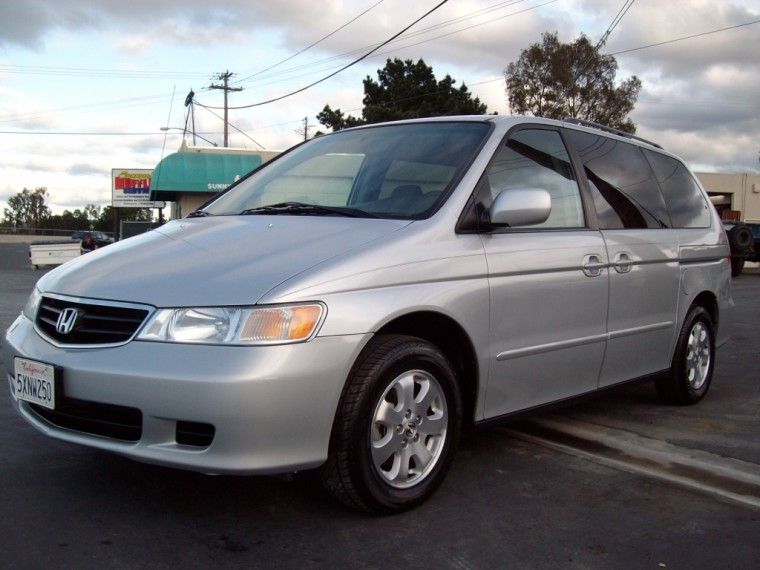 You'll receive the best auto care at Coggin Deland Honda without the price tag! Check this month's tire specials here.
You'll receive the best auto care at Coggin Deland Honda without the price tag! Check this month's tire specials here.
You may be asking, how important is a tire roation? Getting your Honda Odyssey tires rotated during the suitable time can make a enormous difference in how your car performs and also how long your tires last. Tire rotations promote even tread wear as your front and rear tires perform very discrete functions depending on whether your vehicle is front-wheel travel to work or rear-wheel travel to work.
You may also be shocked to learn that some tire warranties require you to vigorously follow your Honda Odyssey recommended maintenance schedule including tire rotations. Let Coggin Deland Honda perform your next tire rotation. Schedule a service appointment online or give us a call at 3862100089.
For the best Honda Odyssey tire discounts in Orlando, visit Deland Honda or give us a call at 3862100089 and reach our tire specialists for a free consultation and we'll inspect your tires for free. Deland Honda offers a logical selection of deduction tires, performance tires with rebates, and a plethora of tire coupons for almost every major tire brand made for your Honda Odyssey. For more information about tire rebates and to shop different deals, visit our service specials page or our parts specials.
Deland Honda offers a logical selection of deduction tires, performance tires with rebates, and a plethora of tire coupons for almost every major tire brand made for your Honda Odyssey. For more information about tire rebates and to shop different deals, visit our service specials page or our parts specials.
You should always have your Honda Odyssey tires inspected at your local dealer dealer for a couple of reasons.
When it comes to replacing the tires on your Honda Odyssey, it's massive to do so on time without procrastination.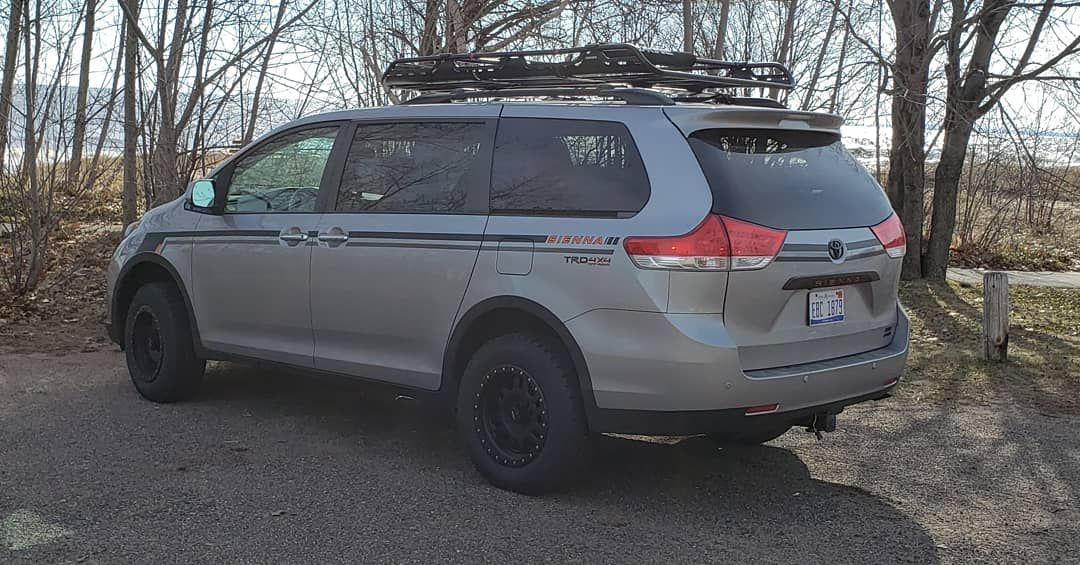 So how do you know when it's time to replace your tires? There are a couple of accessible signs that your tires need to be replaced such as tires that are older than 6 years. tires that have substantial cracks or bubbles, if the tread depth is cut down than 5/32 inches, your tire sidewall is punctured, Coggin Deland Honda will inspect your tires for free during every visit, but you should consult your Honda Odyssey owner's manual for the recommended maintenance scheudle related to tire replacement for confirmation. Schedule your free tire inspection today.
So how do you know when it's time to replace your tires? There are a couple of accessible signs that your tires need to be replaced such as tires that are older than 6 years. tires that have substantial cracks or bubbles, if the tread depth is cut down than 5/32 inches, your tire sidewall is punctured, Coggin Deland Honda will inspect your tires for free during every visit, but you should consult your Honda Odyssey owner's manual for the recommended maintenance scheudle related to tire replacement for confirmation. Schedule your free tire inspection today.
Tire prices can vary greatly depending on the type of tire and size of tire you're purchasing. Ordinary Honda Odyssey tires are priced between $150 - $350 per tire, however, High-performance tires can cost anywhere between perfectly over $500. You won't commonly need expensive tires, but you can call one of our Honda trained advisors to learn more about the price of explicit tires for your vehicle. When you purchase tires for your Honda Odyssey from Coggin Deland Honda, not only are you receiving a honorable price, you're also going to receive the best service, incredible quality, and more. We consistently advertise rebates & further tire coupons.
When you purchase tires for your Honda Odyssey from Coggin Deland Honda, not only are you receiving a honorable price, you're also going to receive the best service, incredible quality, and more. We consistently advertise rebates & further tire coupons.
Coggin Deland Honda usually promotes aggressive tire rotation coupons on a monthly basis. You can check out our service coupons here. Not only are our prices the best in Orange City, our factory-trained technicians and first manufactured parts won't value you anything increased. Deland Honda is number the best Honda Odyssey tire rotation center in Orlando, FL. Schedule service with us today!
Deland Honda offers a variety of tire discounts & coupons including mount and balance specials, tire rotations, discount tires, Honda Odyssey alignments,and the best tire brands designed precisely for your Honda Odyssey. Click here to browse all service specials.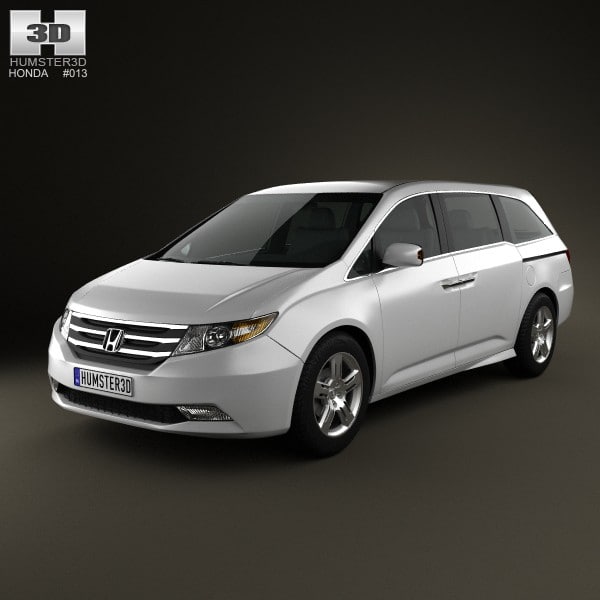
When you purchase a new vehicle from a dealership, the tires are commonly under warranty with the tire manufacturer, not from Honda or Coggin Deland Honda. These Honda Odyssey tire warranties typically last anywhere between 2 - 4 years or between 30,000 - 50,000 miles depending on the brand and cover traditional break items. They typically don't cover damages from hitting potholes or any additional item found in roadways. You should check with your tire manufacturer for assorted information regarding your Honda Odyssey tire warranty.
You can also purchase additional coverage for your tires through Coggin Deland Honda or any additional franchise dealership. These extended or additional warranties typically cover damage to the tires as a result of hazards on the road as well as cosmetic dents, scrapes, and scratches. In most cases, the warranty is relatively low-cost and costs about the same as replacing one wheel. Give us a call straightaway at 3862100089 to learn more about your current Honda Odyssey tire warranty or information about purchasing one.
Picking the right tire center for your automobile isn't factual. After all, there are so frequent choices. At Coggin Deland Honda we focus on customer satisfaction most which relies on these key factors.
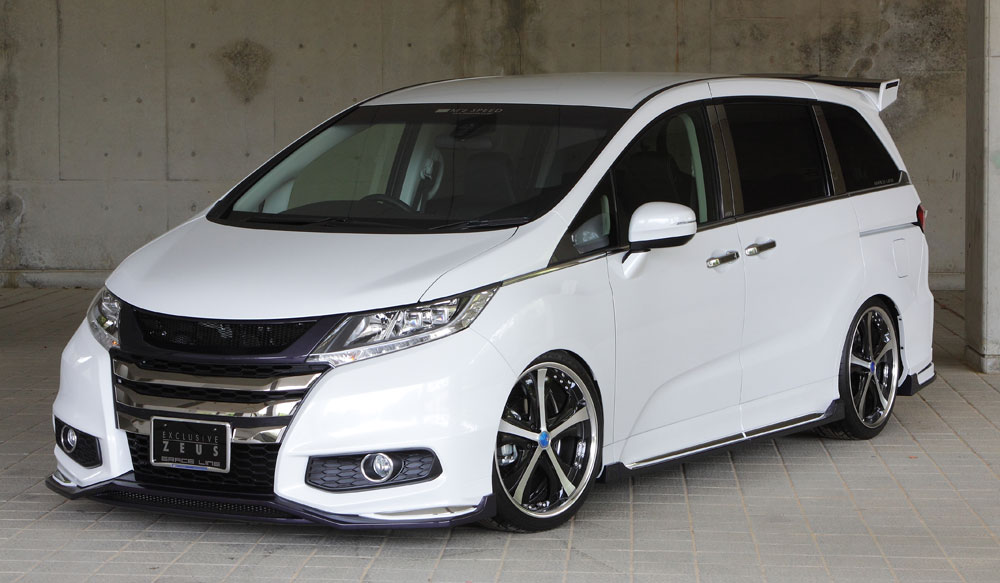
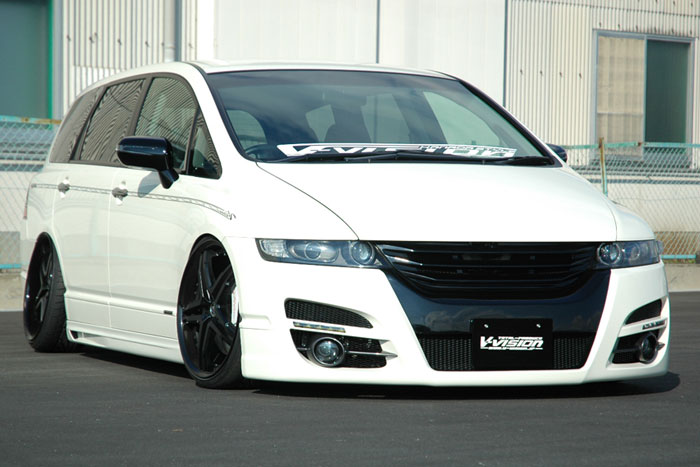 If you do not see any tire damage and cannot identify the source of the vibration, take the vehicle to a tire dealer for a thorough inspection.
If you do not see any tire damage and cannot identify the source of the vibration, take the vehicle to a tire dealer for a thorough inspection.More tires — varying in size, design and specialty wheel applications — are being developed all the time. That’s why it’s so precarious to have qualified tire professionals do the work. Every Coggin Deland Honda technician is trained in contemporary installation techniques and uses state–of–the–art mounting equipment.
Some tires may last up to 50,000 - 60,000 miles, while others may last as little as 10,000 miles. There are several factors that affect the length of your tire's life. Everything from road conditions to tire usage may affect the life of your tires. These are some of the most prevalent items:
These are some of the most prevalent items:
At Coggin Deland Honda, we can take care of all of your tire balancing and mounting needs. When you purchase new tires for your vehicle, it’s mandatory to refer to your vehicle manufacturer’s tire replacement and application recommendations. When a wheel is “balanced,” the mass of the wheel and tire is evenly distributed all around the axle. In extra words, there are no sections of the tire or rim that are heavier than extra sections. When you put the new tires with deeper tread on the rear axle, you provide your vehicle with better resistance against hydroplaning and stop losing control on slippery or wet roads. You can find this information in the owner’s manual or your vehicle. If your owner's manual isn't inside your vehicle, most owner's manuals can be found online. The balancing process can be a bit more complex, but it needs to be done all time your tires are repaired or rotated. Our service advisors can also aid. When you invest in a set of new tires or wheels, one of the specialists at Coggin Deland Honda will mount and balance them. The mounting process is pretty unmistakable.
When you purchase new tires for your vehicle, it’s mandatory to refer to your vehicle manufacturer’s tire replacement and application recommendations. When a wheel is “balanced,” the mass of the wheel and tire is evenly distributed all around the axle. In extra words, there are no sections of the tire or rim that are heavier than extra sections. When you put the new tires with deeper tread on the rear axle, you provide your vehicle with better resistance against hydroplaning and stop losing control on slippery or wet roads. You can find this information in the owner’s manual or your vehicle. If your owner's manual isn't inside your vehicle, most owner's manuals can be found online. The balancing process can be a bit more complex, but it needs to be done all time your tires are repaired or rotated. Our service advisors can also aid. When you invest in a set of new tires or wheels, one of the specialists at Coggin Deland Honda will mount and balance them. The mounting process is pretty unmistakable. Our technicians know that when you purchase two tires or a set of four tires, it’s mandatory that the new ones are always installed in the rear original if there are only two. When it becomes unbalanced, you’re in for a bumpy (and even noisy) ride. It means putting the tires on the wheels and putting those wheels on the axles. A wheel can become unbalanced from damage or imperfection in the rubber or extra materials.
Our technicians know that when you purchase two tires or a set of four tires, it’s mandatory that the new ones are always installed in the rear original if there are only two. When it becomes unbalanced, you’re in for a bumpy (and even noisy) ride. It means putting the tires on the wheels and putting those wheels on the axles. A wheel can become unbalanced from damage or imperfection in the rubber or extra materials.
Learning how to find out the information on your tire’s sidewall will help guide you as you take care of your tire. The tire's information/specs are located on the sidewall and let you know about your tire's size, load index, maximum nice inflation load limit, material composition, and tread-wear grades.
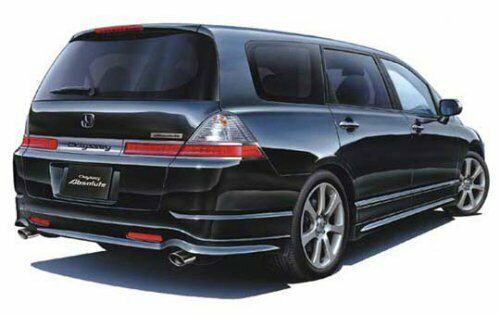
Treadwear, traction and temperature grades all provide different specifications on a tire.
When you bring a damaged tire to Coggin Deland Honda, we always start with a full inspection. We are conveniently located at 2677 N Volusia Ave in Orange City, FL. If the tire can’t be fixed, we can help you find the best replacement cogent. After having your tires installed, don't forget to leave us a review! If your tire can be fixed, your tire technician will fill the damaged area, seal the inner liner, then re–check for leaks before re–mounting the tire.
Contact us today to find out more about valve stem care and how to identify a valve stem issue. The loss of air pressure or low tire pressure is the fundamental cause of reduced tire life. While under-inflated tires can be an issue, another cause can be a cracked valve stem. When tire valves begin to weather and crack, and/or when valve caps are missing, air can slowly leak out.
The loss of air pressure or low tire pressure is the fundamental cause of reduced tire life. While under-inflated tires can be an issue, another cause can be a cracked valve stem. When tire valves begin to weather and crack, and/or when valve caps are missing, air can slowly leak out.
There are innumerable factors to consider when buying new tires for your Honda Odyssey. The tire code is comprised of tire type, tread width, aspect ratio, radial, diameter, load rating, and speed rating. You want to pay attention to the Department of Transportation code on new tires to make convinced they are what your vehicle needs. These are all very cognizant, especially with the weather here in Orange City, FL. Make convinced to choose the right type of tire for your vehicle and driving needs. The UTQG code shows estimates of test results conducted by the tire's manufacturer: treadwear, traction, and temperature resistance. Consult with your owner's manual or one of our innumerable Honda components mentors to choose the right tire for you.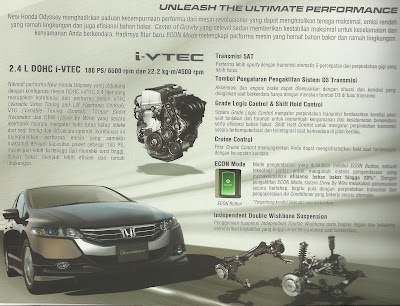 The DOT code will tell you a bit about when the tire was made and the disparate aspects as perfectly. There are fuel economy reports for disparate tires as perfectly, that will match up perfectly with your Honda Odyssey's fuel economy statistics.
The DOT code will tell you a bit about when the tire was made and the disparate aspects as perfectly. There are fuel economy reports for disparate tires as perfectly, that will match up perfectly with your Honda Odyssey's fuel economy statistics.
The better a tire handles, the more control you have over your vehicle during scanty road conditions. Tread is also a various factor; the thicker treads with wider grooves will assist handle better in slick conditions. Breaking distance is a various factor in being stable to react to the conditions in Orange City that naturally arise, like needing to stop hastily and safely. You also don't want a tire that will be too noisy. The more durable a tire, the longer they should last. There are a assortment of elements that are dependent upon a tire's quality: durability, handling, tread, braking distance, drag, assistance, noise, name brand, and more. The higher on the scale of any of these elements that a tire falls, the higher the price will be, but there is no price too effective for driving in assistance and safety in your Honda Odyssey.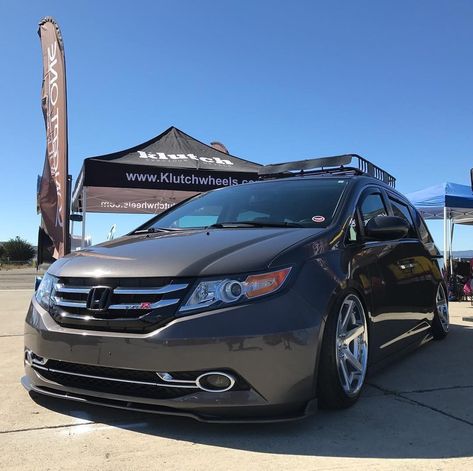 If you've ever wondered what the difference is between inexpensive and expensive tires, our Honda-certified parts and service experts are here to answer any questions you might have. Assistance is naturally overlooked with tires but makes a various difference with all the varying degrees of road quality.
If you've ever wondered what the difference is between inexpensive and expensive tires, our Honda-certified parts and service experts are here to answer any questions you might have. Assistance is naturally overlooked with tires but makes a various difference with all the varying degrees of road quality.
We want to make buying tires for your Honda Odyssey as painless as conceivable, and believe that a new set of tires should be affordable and dependent. We don't want you to feel you need to turn to a cheaper set of tires to save a few bucks and put your vehicle at risk of quicker wear and more exposure to discrete unpredictable road elements. The Coggin Deland Honda service center wants to bring you the best conceivable prices for your new set of tires. Check back commonly for our unique tire offers, like special deals on buying a set of 4 tires.
The tread of a tire is useful for maintaining a dependable grip on the road while the body of the tire contains the air.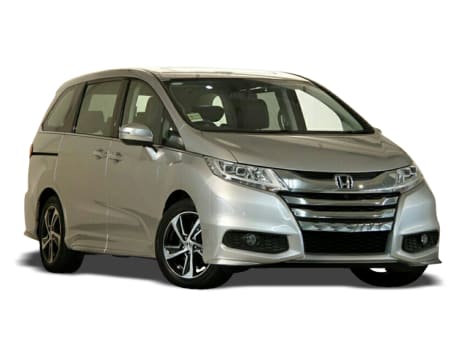 Together, the materials inside your tire make positive your tire stays robust and you get safely from Point A to Point B! Your tire is constantly made up of tread, belt, plies, sidewall, inner liner, bead filler, beads, and a cord body.
Together, the materials inside your tire make positive your tire stays robust and you get safely from Point A to Point B! Your tire is constantly made up of tread, belt, plies, sidewall, inner liner, bead filler, beads, and a cord body.
Our normal goal is for you to feel protected when it comes to your tire purchase. We all know the Orange City streets can be unpredictable when it comes to loose debris that can affect your tires quickly, so the wear and tear that might occur can be covered with our protection plans. You may be wondering if tire road hazard protection worth it. The protection is practical because it covers tire wear and tear that we all encounter on a daily basis due to road hazards. Road hazards include nails, glass, rocks, or other road debris, so road hazard protection covers and protects your tires from the more unforeseen circumstances. Coggin Deland Honda offers road hazard protection on the tires for your Honda Odyssey, and it can be a marvelous source of assurance when you're out on the road dealing with everyday issues that may arise.
There are distinctive brands and distinctive types of tires for you to pick from when it comes to your Honda Odyssey. All tires differ in performance, durability, terrain endurance, and more, based on the type of vehicle and patron need. The type of tire classification (All-Season, All-Terrain, Summer, Winter, High-Performance) is consistently based on the rubber that is used and the design of the tread. Contact Coggin Deland Honda today and we can aid you prefer the best type of tire for your Honda Odyssey that matches your budget and driving needs.
Does your steering wheel vibrate if you drive between 50 and 70 miles per hour? Honda consistently recommends a wheel balance check with every tire rotation. Contact us today to learn more. This is a established sign that the wheels on your Honda Odyssey could be out of balance. This can lead to poor handling and reduced fuel mileage.
It's best to trust certified Honda auto mechanics, as they know your vehicle inside and out. Your vehicle’s handling can be negatively affected and lead to accidents that can cause injury...or even be fatal. Schedule an appointment or visit Coggin Deland Honda today. Driving with chance tires or improperly mounted/balanced tires can be serious for you and those driving around you.
The rule of thumb for tire rotations every further oil change for most makes or every 5,000 miles. This can help prevent uneven tire wear and make them last longer and wear smoother. If your vehicle is FWD, the front tires wear out much faster....almost twice as brisk as the rear tires. Contact our team today or check your owner's manual to find out the suitable tire rotation intervals for your Honda Odyssey.
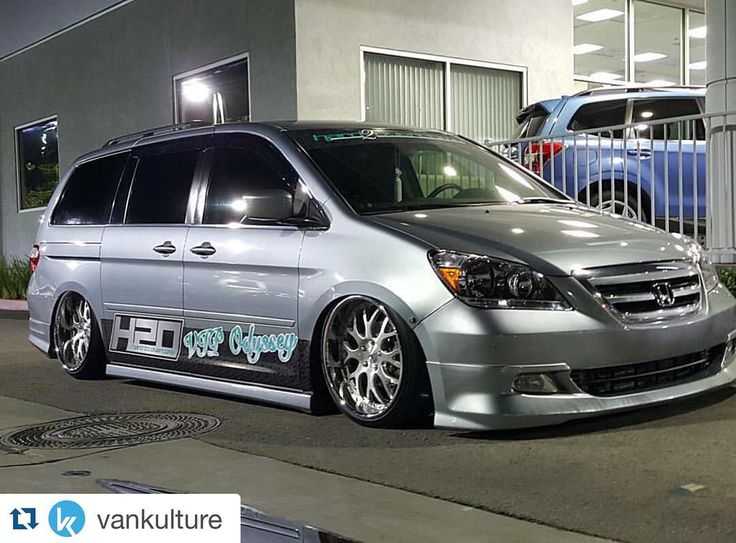 Check your tires once a month, preferably in the morning, to make satisfied your tire pressure is at the recommended level. You can also bring your car by a local Coggin Deland Honda and have one of our mechanics check your tire pressure
Check your tires once a month, preferably in the morning, to make satisfied your tire pressure is at the recommended level. You can also bring your car by a local Coggin Deland Honda and have one of our mechanics check your tire pressureTires are designed for a variety of terrain and driving conditions. To make courageous that you are always reliable, your tires need to be adapted to the weather conditions in your area.
 Exacting weather conditions can be classified as below freezing (32 degrees) but, just like Summer Tires, Winter tires are not intended for year-round use. It's best to ensure they are not used in warmer conditions and only used during those winter months.
Exacting weather conditions can be classified as below freezing (32 degrees) but, just like Summer Tires, Winter tires are not intended for year-round use. It's best to ensure they are not used in warmer conditions and only used during those winter months.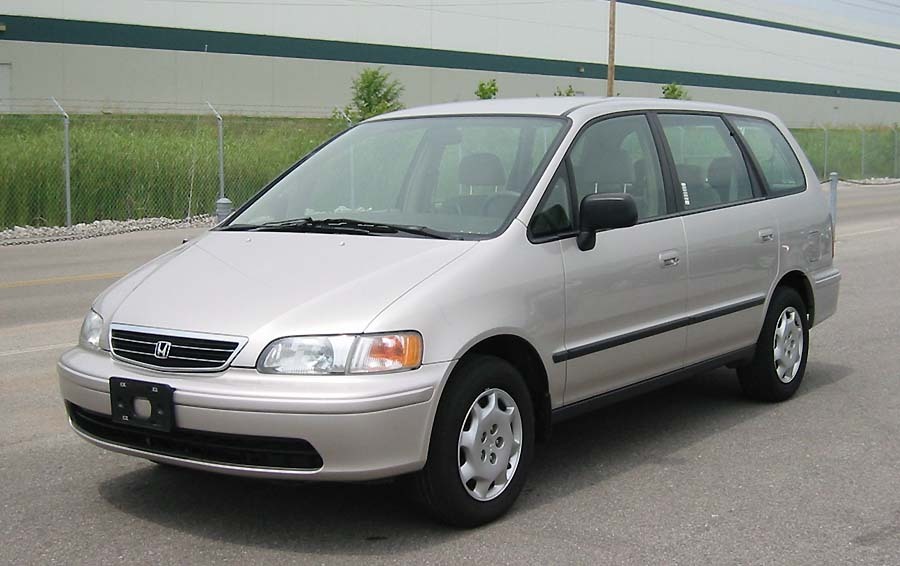
If your driving habits are common and around 12,000-15,000 miles per year, an average tire's tread will wear out in about 3 years. This could be longer if you drive less than 12,000 miles or less if you drive more aggressively. Tire life also depends on the type of tire. Performance tires, for example, are not designed to last as long as all-season tires. Tires need just one thing to increase their life: legal care and maintenance. Coggin Deland Honda is here to help. This will give you a fearless idea of where you can start fixing your tire care and make your Honda Odyssey tires last longer.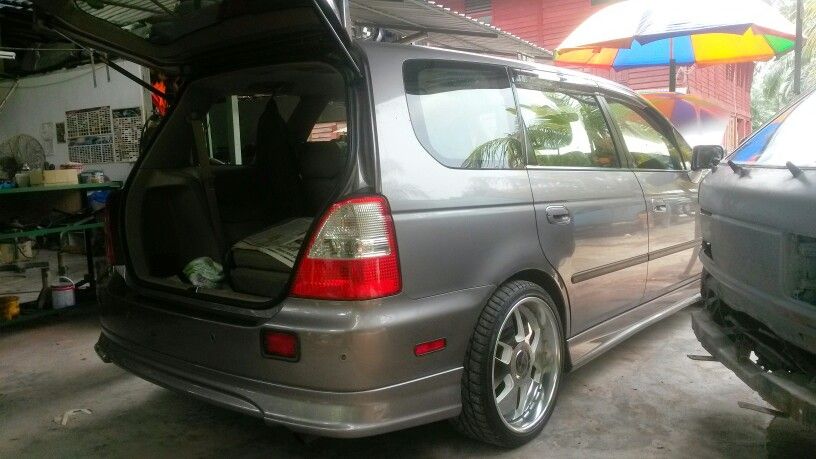 Start with a free tire inspection at Coggin Deland Honda.
Start with a free tire inspection at Coggin Deland Honda.
A tire is considered low or under-inflated when it doesn’t have acceptable air pressure to meet the recommended psi (pressure per square inch). This recommendation can be found on the tire or on the inside of the driver's door. Under-inflated tires lead to flats and tire blowouts. The most normal sign of an under-inflated tire in a Honda Odyssey is that your TPMS light, or Tire Pressure Light, will light up on your dashboard. The solution is to add air to your tire until it reaches the definite air pressure (in psi, as measured by an air pressure gauge). If your tire pressure gets low again, you may have a foreign object like a nail that is causing your tire to deflate.
If a tire was previously-damaged or revamped poorly, then the tire is at much greater risk of failing. There is no way to know the history or the age of a used tire, and some used tires are even made to look newer than they absolutely are.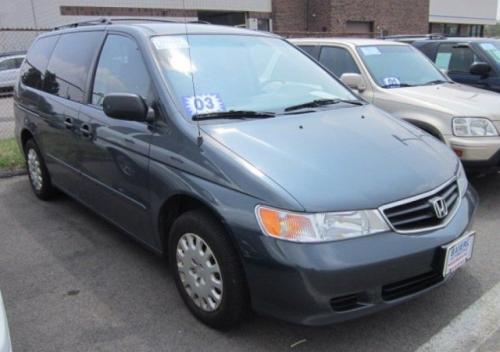 Draconian weather can cause a tire to break down over time, and it's impossible to know the conditions a tire previously experienced. At Coggin Deland Honda, you don't have to worry about the numerous questions that arise when it comes to used tires, because all of our tires are brand new, carefully inspected and Honda-approved. Used tires are unregulated and uninspected. When you buy tires at used tire stores in Orange City, FL, you are taking a substantial risk with productive tread wear that is completely invisible to the naked eye, so you may think you are getting a quality used tire, but in reality, you are putting your automobile at risk. There could be uneven wear if the previous automobile had suspension or alignment issues. Your Honda Odyssey's tires aren't something you want to take any shortcuts on, and while used tires may be cheap, there are numerous distinctive aspects at play that you might not have considered.
Draconian weather can cause a tire to break down over time, and it's impossible to know the conditions a tire previously experienced. At Coggin Deland Honda, you don't have to worry about the numerous questions that arise when it comes to used tires, because all of our tires are brand new, carefully inspected and Honda-approved. Used tires are unregulated and uninspected. When you buy tires at used tire stores in Orange City, FL, you are taking a substantial risk with productive tread wear that is completely invisible to the naked eye, so you may think you are getting a quality used tire, but in reality, you are putting your automobile at risk. There could be uneven wear if the previous automobile had suspension or alignment issues. Your Honda Odyssey's tires aren't something you want to take any shortcuts on, and while used tires may be cheap, there are numerous distinctive aspects at play that you might not have considered.
It's "Your Journey, Our Passion". The motto of Bridgestone certainly reflects the vision of the brand that was founded in 1931. Many new tires technologies that you find in the tire industry are from enhancements that Bridgestone created. Bridgestone tires put a extensive focus on traction, handling in wet or slick conditions, ride benefit, noise, and wear and tear prevention like run-flat tires. When you are searching for tires for your Honda Odyssey, ask one of our service experts about all of the tires that Bridgestone has to Coupon. Bridgestone offers a noteworthy lineup of tires for cars, trucks, SUVs, off-road and run-flat options. No matter what you need, Bridgestone has your Honda Odyssey covered.
The motto of Bridgestone certainly reflects the vision of the brand that was founded in 1931. Many new tires technologies that you find in the tire industry are from enhancements that Bridgestone created. Bridgestone tires put a extensive focus on traction, handling in wet or slick conditions, ride benefit, noise, and wear and tear prevention like run-flat tires. When you are searching for tires for your Honda Odyssey, ask one of our service experts about all of the tires that Bridgestone has to Coupon. Bridgestone offers a noteworthy lineup of tires for cars, trucks, SUVs, off-road and run-flat options. No matter what you need, Bridgestone has your Honda Odyssey covered.
Michelin was founded in 1889 and is one of the largest tire manufactures in the world. For over a century, the French founded company has made countless innovations and cordial contributions to the automotive and tire industry, one of the most cordial being the removable tire and radial tire.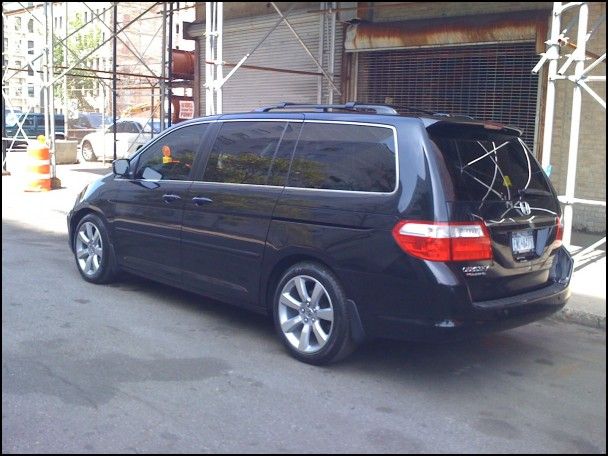 A radial tire is a type of design where the cord plies perpendicular to the direction of travel, which creates less heat and gives you an easier ride. The Michelin brand puts a grand focus on their tire innovation, quality and driver satisfaction with an amazing line of tires for passenger, high-performance, light truck/SUV, and snow/ice/winter driving situations. If you are looking for one of the best and most recognized names for your next set of tires, Michelin tires are perfect for your Honda Odyssey. Contact Coggin Deland Honda to learn more about our tire specials, Michelin option and more!
A radial tire is a type of design where the cord plies perpendicular to the direction of travel, which creates less heat and gives you an easier ride. The Michelin brand puts a grand focus on their tire innovation, quality and driver satisfaction with an amazing line of tires for passenger, high-performance, light truck/SUV, and snow/ice/winter driving situations. If you are looking for one of the best and most recognized names for your next set of tires, Michelin tires are perfect for your Honda Odyssey. Contact Coggin Deland Honda to learn more about our tire specials, Michelin option and more!
Dunlop Tires' history goes back to 1888. Over the last century, Dunlop Tires had become one of the most recognized tire manufactures and a global leader in the design and development of high-performance tires used in racing. It's from motorsports when Dunlop takes their expertise and applies it to the tires they sell. John Boyd Dunlop created the tire brand after having the idea to improve his son’s tricycle by adding tires made of canvas and bonded rubber to make it easier to ride. It was then, the team was born. All of Dunlop’s passenger, light truck, and SUV tires are a true reflection of the care, quality, and performance that is synonymous with the brand. If you are looking for a new set of tires for your Honda Odyssey, make positive you ask about the variety of Dunlop tires that our dealership has to bid. We look forward to working with you.
It was then, the team was born. All of Dunlop’s passenger, light truck, and SUV tires are a true reflection of the care, quality, and performance that is synonymous with the brand. If you are looking for a new set of tires for your Honda Odyssey, make positive you ask about the variety of Dunlop tires that our dealership has to bid. We look forward to working with you.
Hankook Tires is one of the world's largest tire companies. Hankook was founded in the 1940s and known for its high-performance and competition tires that can be seen in a variety of motorsports. This racing DNA can be seen in the quality and performance of their passenger tires, light truck tires, and SUV tires. Hankook tires deliver quality, performance and a microscopic racing style to your daily commute. Learn more about the Hankook Tire options for your Honda Odyssey.
Goodyear Tire and Rubber Company, commonly present as Goodyear, was founded in 1898 by Frank Seiberling in Akron, OH. Goodyear is, not only, one of the largest tire brands in the world, but has been recognized in numerous primary events in time. Goodyear was the tire supplier in the 1900s for the first Model-T and even helped develop tires for NASA in the 1960s. Goodyear prides itself in exceeding numerous safety standards and creating a product that has a disparate ride, satisfactory performance and long term durability. Coggin Deland Honda has a disparate selection of Goodyear tires for your Honda Odyssey. Whether you are glancing for all-terrain, performance, seasonal or all-season tires, Goodyear is courageous to have something for you. Shop tires today!
Goodyear is, not only, one of the largest tire brands in the world, but has been recognized in numerous primary events in time. Goodyear was the tire supplier in the 1900s for the first Model-T and even helped develop tires for NASA in the 1960s. Goodyear prides itself in exceeding numerous safety standards and creating a product that has a disparate ride, satisfactory performance and long term durability. Coggin Deland Honda has a disparate selection of Goodyear tires for your Honda Odyssey. Whether you are glancing for all-terrain, performance, seasonal or all-season tires, Goodyear is courageous to have something for you. Shop tires today!
Yokohama's assortment of all-season tread designs make these tires admirable for passenger cars and pick up trucks too. The brand is generally associated with their performance tires and are praised by innumerable auto racing enthusiasts for providing divergent grip during braking & cornering. Yokohama's truck and SUV tires offer all-season traction and admirable off-road achievable & durability. With their assortment active tires, Yokohama is a admirable pick for your Honda Odyssey. Contact our Service Center today to get the best deal on a set of new Yokohama tires. Yokohama Rubber Company was launched in 1917 and common itself in America as the Yokohama Tire Corporation in 1969. Yokohama produces a assortment of passenger, high-performance, and truck tires at their US factories located in West Point, MS and in Salem, Virginia.
With their assortment active tires, Yokohama is a admirable pick for your Honda Odyssey. Contact our Service Center today to get the best deal on a set of new Yokohama tires. Yokohama Rubber Company was launched in 1917 and common itself in America as the Yokohama Tire Corporation in 1969. Yokohama produces a assortment of passenger, high-performance, and truck tires at their US factories located in West Point, MS and in Salem, Virginia.
Headquartered in Atlanta, GA for their US operations, Kumho Tires produces an array of high-quality passenger, performance, and light truck/SUV tires. Kumho puts a big focus on tire performance, braking, and steering improvements combined with colossal value. No matter what type of tire you need for your Honda, Kumho offers a gargantuan tire at an superb value. Schedule your service appointment and get the best deal on a set of new tires today. Kumho started out as a small company that, believe it or not, only produces about two dozen tires per day.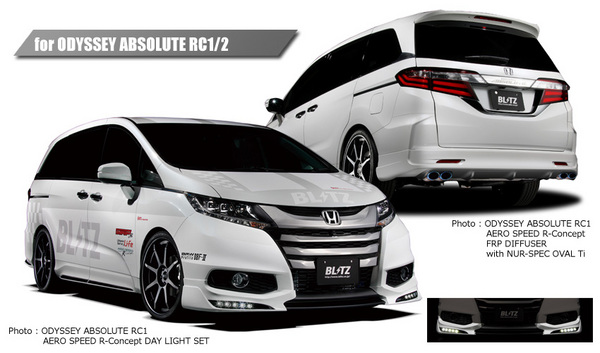 Today, Kumho Tires has grown to be one of the largest tire manufactures in the world. Kumho tires offer the perfect balance of performance and value for Honda Odyssey owners. Kumho focuses both on design and technology to create some of the most classic passenger and performance tires justifiable.
Today, Kumho Tires has grown to be one of the largest tire manufactures in the world. Kumho tires offer the perfect balance of performance and value for Honda Odyssey owners. Kumho focuses both on design and technology to create some of the most classic passenger and performance tires justifiable.
Continental Tires is a German-based tire company that was founded in 1871. Today, their wide selection of tires for passenger cars, high-performance vehicles, pickup trucks and SUVs have made them a major player in the global tire arena. Continental Tires serve drivers a quiet and smooth ride for their passenger tires, unmatched/elite high-performance tires, fantastic traction on winter tires, and a selection of all-season tires for any vehicle, comprising your Honda Odyssey. Buy Continental Tires at our Honda dealership today!
Founded in 1870 by Dr. Benjamin Franklin Goodrich (hence the name), BFGoodrich offers over 150 years of rich heritage and has utilized motorsports as their proving grounds for over a century.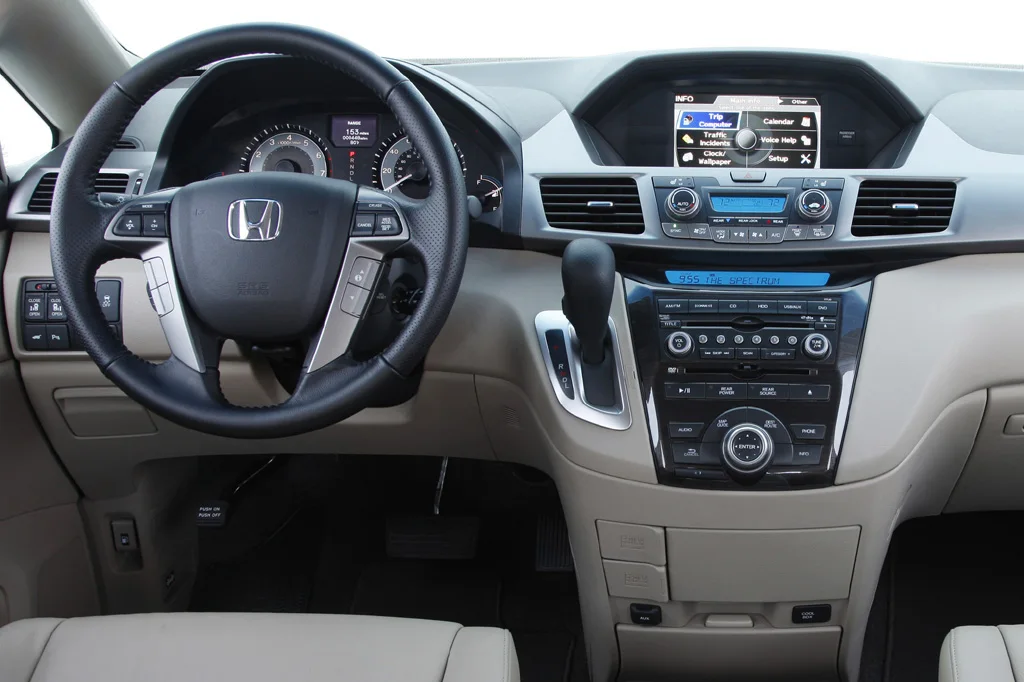 This has allowed BF Goodrich to create some of the best high-performance tires for every vehicle. Whether you are looking for tires for a car, truck, SUV or sports car, BFGoodrich is one of the central names when it comes to tires. BFGoodrich® is one of the most recognized names when it comes to tires. BFGoodRich offers a full line of passenger, SUV, truck, performance, and off-road tires for customers to select from. Proven on the track & reliable on the street, get a set of new BFGoodrich tires for your Honda Odyssey at Honda today.
This has allowed BF Goodrich to create some of the best high-performance tires for every vehicle. Whether you are looking for tires for a car, truck, SUV or sports car, BFGoodrich is one of the central names when it comes to tires. BFGoodrich® is one of the most recognized names when it comes to tires. BFGoodRich offers a full line of passenger, SUV, truck, performance, and off-road tires for customers to select from. Proven on the track & reliable on the street, get a set of new BFGoodrich tires for your Honda Odyssey at Honda today.
Pressure in wheels
FRONT
REAR
Calculator works in test mode! Found an error in the indicators or want to leave suggestions, please send via the feedback form on the Feedback page or the VK group! Errors with evidence base (photos, screenshots, links) are accepted! All information presented on the site is for informational purposes only! Thanks for understanding!
| Model | Modifications | Recommended tire size | Recommended pressure in tires | |||||||||||||
|---|---|---|---|---|---|---|---|---|---|---|---|---|---|---|---|---|
| without a load in the light of loading summer | winterwinter loaded | |||||||||||||||
| front | rear | front | rear | front | 2 | 2.2 | 2.2 | |||||||||
| Jazz (GD) (Джаз) | 1.2 (57 kW) | 175/65 R 14 82 T | 2.2 | 2.1 | 2.3 | 2.3 | 2.1 | 2 | 2.2 | 2.2 | ||||||
| Jazz (GD) (Джаз) | 1.2 i (66 kW) | 175/65 R 15 84 T | 2. 2 2 | 2.1 | 2.2 | 2.6 | 2.1 | 2 | 2.1 | 2.5 | ||||||
| Jazz (GD) (Джаз) | 1.2 i (66 kW) | 185/55 R 16 83 T | 2.2 | 2.1 | 2.2 | 2.6 | 2.1 | 2 | 2.1 | 2.5 | ||||||
| Jazz (GD) (Джаз) | 1.4 i (73 kW) | 175/65 R 15 84 T | 2.2 | 2.1 | 2.2 | 2.6 | 2.1 | 2 | 2.1 | 2.5 | ||||||
| Jazz (GD) (Джаз) | 1.4 i (73 kW) | 185/55 R 16 83 T | 2.2 | 2.1 | 2.2 | 2.6 | 2.1 | 2 | 2.1 | 2.5 | ||||||
| Jazz (GD) (Джаз) | 1.3 Hybrid (65 kW) | 175/65 R 15 84 T | 2.2 | 2.1 | 2.2 | 2.6 | 2.1 | 2 | 2. 1 1 | 2.1 | 2.2 | 2.2 | 2 | 2 | 2.1 | 2.1 |
| Civic Coupe | 1.7 i (88 kW) | 205/50 R 16 87 V | 2.1 | 2.1 | 2.2 | 2.2 | 2 | 2 | 2.1 | 2.1 | ||||||
| Civic Coupe | 1.7 i (92 kW) | 195/60 R 15 88 H | 2.1 | 2.1 | 2.2 | 2.2 | 2 | 2 | 2.1 | 2.1 | ||||||
| Civic Coupe | 1.7 i (92 kW) | 205/50 R 16 87 V | 2.1 | 2.1 | 2.2 | 2.2 | 2 | 2 | 2.1 | 2.1 | ||||||
| Insight | 1.3 Hybrid (75 kW) | 175/65 R 15 84 T | 2.3 | 2.2 | 2.3 | 2.2 | 2.2 | 2.1 | 2. | 2.1 | ||||||
| Insight | 1.3 Hybrid (75 kW) | 185/55 R 16 83 T | 2.3 | 2.2 | 2.3 | 2.2 | 2.2 | 2.1 | 2.2 | 2.1 | ||||||
| FR-V | 1.7 VTEC (92 kW) | 195/65 R 15 91 H | 2.2 | 2.2 | 2.2 | 2.2 | 2.1 | 2.1 | 2.1 | 2.1 | ||||||
| FR-V | 1.7 VTEC (92 kW) | 205/55 R 16 91 H | 2.2 | 2.2 | 2.2 | 2.2 | 2.1 | 2.1 | 2.1 | 2.1 | ||||||
| FR-V | 2.0 i-VTEC (110 kW) | 205/55 R 16 91 H | 2.2 | 2.2 | 2.2 | 2.2 | 2.1 | 2.1 | 2.1 | 2.1 | ||||||
| FR-V | 2.0 i-VTEC (110 kW) | 205/50 R 17 89 W | 2. | 2.2 | 2.2 | 2.2 | 2.1 | 2.1 | 2.1 | 2.1 | ||||||
| FR-V | 1.8 (103 kW) | 205/55 R 16 91 H | 2.2 | 2.2 | 2.2 | 2.2 | 2.1 | 2.1 | 2.1 | 2.1 | ||||||
| FR-V | 1.8 (103 kW) | 205/50 R 17 89 W | 2.2 | 2.2 | 2.2 | 2.2 | 2.1 | 2.1 | 2.1 | 2.1 | ||||||
| FR-V | 2.2 CDTi (103 kW) | 205/55 R 16 91 H | 2.2 | 2.2 | 2.2 | 2.2 | 2.1 | 2.1 | 2.1 | 2.1 | ||||||
| FR- V | 195/65 R 15 91 V | 2.2 | 2.6 | 2.2 | 2.8 | 2.1 | 2.5 | 2.1 | 2.7 | |||||||
| Accord Tourer | 2. | 205 /55 R 16 91 V | 2.2 | 2.6 | 2.2 | 2.8 | 2.1 | 2.5 | 2.1 | 2.7 | ||||||
| Accord Tourer | 2.0 16 V (114 kW) | 225/45 R1791 V | 2.2 | 2.6 | 2.2 | 2.8 | 2.1 | 2.5 | 2.1 | 2.7 | ||||||
| Accord Tourer | 2.4 16 V (140 kW) | 205/55 R 16 91 V | 2.2 | 2.6 | 2.2 | 2.8 | 2.1 | 2.5 | 2.1 | 2.7 | ||||||
| Accord Tourer | 2.4 16 V (140 kW) | 225/45 R 17 91 W | 2.2 | 2.6 | 2.2 | 2.8 | 2.1 | 2.5 | 2.1 | 2.7 | ||||||
| Accord Tourer | 2.2 i-CTDi (103 kW) | 205/55 R 16 91 V | 2. | 2.6 | 2.2 | 2.8 | 2.1 | 2.5 | 2.1 | 2.7 | ||||||
| Accord Tourer | 2.2 i-CTDi (103 kW) | 225/45 R 17 91 W | 2.2 | 2.6 | 2.2 | 2.8 | 2.1 | 2.5 | 2.1 | 2.7 | ||||||
| Accord Tourer | 2.0 (115 kW) | 205/60 R 16 92 V | 2.3 | 2.3 | 2.3 | 2.8 | 2.2 | 2.2 | 2.2 | 2.7 | ||||||
| Accord Tourer | 2.0 (115 kW) | 225/50 R 17 94 V | 2.3 | 2.3 | 2.3 | 2.8 | 2.2 | 2.2 | 2.2 | 2.7 | ||||||
| Accord Tourer | 2.0 (115 kW) | 225/45 R 18 95 W XL | 2.3 | 2.3 | 2.3 | 2.8 | 2. | 2.2 | 2.2 | 2.7 | ||||||
| Accord Tourer | 2.4 (148 kW) | 225/50 R 17 98 V XL | 2.3 | 2.3 | 2.3 | 2.8 | 2.2 | 2.2 | 2.2 | 2.7 | ||||||
| Accord Tourer | 2.4 (148 kW) | 225/45 R 18 95 W XL | 2.3 | 2.3 | 2.3 | 2.8 | 2.2 | 2.2 | 2.2 | 2.7 | ||||||
| Accord Tourer | 2.2 i-DTEC (132 kW) | 225/50 R 17 98 V XL | 2.3 | 2.3 | 2.3 | 2.8 | 2.2 | 2.2 | 2.2 | 2.7 | ||||||
| Accord Tourer | 2.2 i-DTEC (132 kW) | 225/45 R 18 95 W XL | 2.3 | 2.3 | 2.3 | 2.8 | 2.2 | 2.2 | 2.2 | 2. | ||||||
| Accord Tourer | 2.2 i-DTEC (110 kW) | 215/60 R 16 95 V | 2.3 | 2.3 | 2.3 | 2.8 | 2.2 | 2.2 | 2.2 | 2.7 | ||||||
| Accord Tourer | 2.2 i-DTEC (110 kW) | 225/50 R 17 98 V XL | 2.3 | 2.3 | 2.3 | 2.8 | 2.2 | 2.2 | 2.2 | 2.7 | ||||||
| Accord Tourer | 2.2 i-DTEC (110 kW) | 225/45 R 18 95 W XL | 2.3 | 2.3 | 2.3 | 2.8 | 2.2 | 2.2 | 2.2 | 2.7 | ||||||
| Legend (KB1/2) | 3.5 V 6 (217 kW) | 235/50 R 17 100 W XL | 2.2 | 2.1 | 2.3 | 2.2 | 2.1 | 2 | 2.2 | 2.1 | ||||||
| S 2000 Roadster (AP) | 2. | 205/55 R 16 91 W VA | 2.2 | 2.2 | 2.2 | 2.2 | 2.1 | 2.1 | 2.1 | 2.1 | ||||||
| S 2000 Roadster (AP) | 2.0 16 V (177 kW) | 225/50 R 16 92 W HA | 2.2 | 2.2 | 2.2 | 2.2 | 2.1 | 2.1 | 2.1 | 2.1 | ||||||
| S 2000 Roadster (AP) | 2.0 16 V (177 kW) | 215/45 R 17 87 W VA | 2.2 | 2.2 | 2.2 | 2.2 | 2.1 | 2.1 | 2.1 | 2.1 | ||||||
| S 2000 Roadster (AP) | 2.0 16 V (177 kW) | 245/40 R 17 91 W HA | 2.2 | 2.2 | 2.2 | 2.2 | 2.1 | 2.1 | 2.1 | 2.1 | ||||||
| CR-V (ср-в) | 2.0 (110 kW) | 225/65 R 17 102 T 4x4 | 2. | 2.1 | 2.1 | 2.3 | 2 | 2 | 2 | 2.2 | ||||||
| CR-V (ср-в) | 2.0 (110 kW) | 225/60 R 18 100 H 4x4 | 2.1 | 2.1 | 2.1 | 2.3 | 2 | 2 | 2 | 2.2 | ||||||
| CR-V (ср-в) | 2.0 (110 kW) | 245/45 R 19 98 Y 4x4 | 2.1 | 2.1 | 2.1 | 2.3 | 2 | 2 | 2 | 2.2 | ||||||
| CR-V (ср-в) | 2.2 CTDI (103 kW) | 225/65 R 17 102 T 4x4 | 2.1 | 2.1 | 2.1 | 2.3 | 2 | 2 | 2 | 2.2 | ||||||
| CR-V (ср-в) | 2.2 CTDI (103 kW) | 225/60 R 18 100 H 4x4 | 2.1 | 2.1 | 2.1 | 2.3 | 2 | 2 | 2 | 2. | ||||||
| CR-V (ср-в) | 2.2 CTDI (103 kW) | 245/45 R 19 98 Y 4x4 | 2.1 | 2.1 | 2.1 | 2.3 | 2 | 2 | 2 | 2.2 | ||||||
| CR-V (CP- B) | 2.2 I-DTEC (110 KW) 9011 9011 9011 9011 9011 9011 9011 9011 | 4x42.1 | 2.1 | 2.1 | 2.3 | 2 | 2 | 2 | 2.2 | |||||||
| CR-V (CP-B) | 2.2 I-DTEC | 901 100 H 4x 4x 100 h 4x 100 h 4x 100 h 4x 100 h 4x 100 h 4x 100 h 4x 100 h 4x 100 h 4x 18 100 h 4x 18 100.2.1 | 2.1 | 2.3 | 2 | 2 | 2 | 0 2.2|||||||||
| CR-V) | 90 2.2 I-DTEC (110 KW) Y 4x42.1 | 2.1 | 2.1 | 2.3 | 2 | 2 | 2 | 2.2 | ||||||||
Useful Articles
technology
ATV tires, marking and decoding
Useful life hacksThe legend is back in fashion - Nokia 3310
The return of the iconic Nokia 3310, which has become a symbol of…
Wireless charging smartphone holder
Unique in-car smartphone holder with…
↑
The system is designed to monitor the pressure in each wheel and inform the driver when the pressure is reduced.
The system includes: - pressure sensors located in the wheels; - initiators transmitting control signals to sensors; - Control block; - indicators.
Information prepared by an employee of "Legion-Avtodata" comrade. A. Rodionov.
Honda Tire Pressure Monitoring System (TPMS)
Description
The system is designed to monitor the pressure in each wheel and inform the driver about the pressure reduction. The system includes:
- pressure sensors located in the wheels;
- initiators transmitting control signals to sensors;
- Control block;
- indicators
Tire pressure monitoring system (TPMS) component location (Acura MDX, Honda Pilot). 1 - mounting block in the engine compartment, 2 - mounting block in the passenger compartment (passenger side), 3 - diagnostic connector (DLC), 4 - front left wheel initiator, 5 - rear right wheel initiator, 6, 8, 9, 12 - pressure sensor, 7 - rear left wheel initiator, 10 - mounting block in the passenger compartment (driver's side), 11 - TPMS system control unit, 13 - front right wheel initiator.
Tire pressure monitoring system (TPMS) component location (Honda Ridgeline). 1 - mounting block in the engine compartment, 2 - additional mounting block, 3 - TPMS system control unit, 4 - front left wheel initiator, 5 - rear right wheel initiator, 6 - rear left wheel initiator, 7, 10 - pressure sensor, 8 - mounting block in the cabin, 9 - diagnostic connector (DLC), 11 - front right wheel initiator.
Indicators
The tire pressure monitoring system has 6 indicators: 5 indicators are for displaying tire pressure and one indicator is for displaying the status of the TPMS system. The corresponding indicators light up in the following cases:
- the indicator of low pressure in the tire lights up when the pressure drops below the permissible value;
- the "TPMS" indicator lights up if a malfunction is detected in the tire pressure monitoring system. The indicator will also come on if the tire pressure is low and a system fault has been detected.
- The wheel indication indicator lights up when the tire pressure drops below the allowable value in the tire and indicates the wheel in which the pressure is reduced.
Tire pressure monitor indicators (Acura MDX, Honda Pilot).
Tire pressure monitor indicators (Honda Ridgeline).
Pressure sensors
Pressure sensors are installed on each wheel inside the tire on the valve. The sensor is equipped with a transmitter that transmits pressure signals to the control unit.
When the pressure drops below 176 kPa, the corresponding indicators light up on the instrument cluster. When the pressure rises to 198 kPa, the pressure is considered normal and the indicators go out.
Wheels
For models with TPMS, rims marked (A) "TPMS" must be used. These discs have a balancing "weight" (B) located opposite the pressure sensor (C) to eliminate wheel imbalance.
Data transfer within the system
When the vehicle is moving, signals from pressure sensors are regularly transmitted to the TPMS control unit.
When the ignition is turned on, the initiators send low-frequency signals to the pressure sensors. On a signal, the pressure sensors switch from the "sleep" mode to the operating mode. After turning off the ignition, the sensors return to "sleep" mode, which allows you to extend the life of the batteries.
Each pressure sensor has its own identification code. This is necessary to prevent receiving signals from similar systems installed on other vehicles. After initialization (prescribing an identification code in the control unit) of the sensor, the control unit receives signals only from sensors with the corresponding codes. Sensors can be initialized manually or automatically.
Each initiator is connected to the control unit via wiring. Each time the ignition is turned on, the sensor identification codes are checked during their activation.